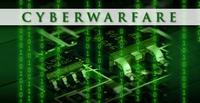-
China, U.S. to team up on cybersecurity
Secretary of State John Kerry announced on Saturday that China and the United States will join forces to start a working group on cybersecurity.Kerry’s announcement follows several attempts for a dialogue on the topic between the two sides.
-
-
Proposed budget shows DHS will have to do with less
The administration’s proposed 2013 budget shows that DHS will have to do with less: the department $39 billion is $625 million less than the department’s2012 budget, and, in addition, the department has committed to save an additional $1.3 billion by reducing administrative costs. Among the big-ticket items in the new budget: $714 million for a state-of-the-art animal disease lab; $494 million to fund research and development in cybersecurity, explosives detection, and chemical/biological response systems; and $221 million for 1,600 additional Border Patrol agents.
-
-
DHS, international tech-crime investigative body, partners on cybersecurity
The High Technology Crime Investigation Association (HTCIA) said it would team up with DHS Stop. Think. Connect. Campaign’s National Network. The partnership will promote awareness of cyber security to industry, university, and government organizations nationwide.
-
-
House Intelligence Committee to work on cybersecurity bill in camera
The House Intelligence Committee will meet next week in order to draft a cybersecurity bill, known as the Cyber Intelligence Sharing and Protection Act (CISPA), but will not allow media members or the public to sit in on meetings during the process.
-
-
DHS seeking student hackers
DHS Secretary Janet Napolitano on Tuesday said that due to “new and rapidly growing threats” of a cyberattack, hundreds of college-age hackers are needed to help deal with the massive number of daily incursions into the nation’s electrical grid and other critical infrastructure.
-
-
Draft cybersecurity bill to increase penalties for hacking substantially
A draft of a cybersecurity bill circulating among House Judiciary Committee members would strengthen a computer hacking law. The draft would stiffen penalties for cyber crimes and establish a standard for companies to tell consumers when their personal information has been hacked. The bill would also change an existing law, making a cyber crime attempt punishable as an actual offense.
-
-
Obama: at least some Chinese cyberattacks on U.S. are “state sponsored”
In an interview to be aired today on ABC News, President Barack Obama said that some, but not necessarily all, cyberattacks on U.S. firms and infrastructure originating in China were “state sponsored.” Obama stressed the need to avoid “war rhetoric” when discussing cyberattacks, and renewed his calls for Congress to strengthen cyber security while protecting civil liberties.
-
-
Napolitano testifies on cybersecurity executive order
Two Senate panels questioned DHS Secretary Janet Napolitano yesterday at a hearing on President Obama’s cybersecurity executive order and what issues need to be addressed in cyber legislation. “We simply cannot afford to wait any longer to adequately protect ourselves,” Said Senator Jay Rockefeller (D-West Virginia), chairman of the Senate Commerce Committee.
-
-
Tech companies, telecoms clash over cybersecurity executive order
Last August a cybersecurity bill died in Congress amid partisan bickering. On 12 February this year, President Obama packed many of that bill’s elements into a cybersecurity executive order. To make the order more acceptable to some of its congressional and industry critics, the president introduced an exemption which would take large technology companies off the list of companies subject to the new cybersecurity standards. This exemption placated some of the original cybersecurity bill’s critics, but angered others, chief among them telecommunication companies.
-
-
New trends in cybersecurity and information security education

The Federal Information Systems Security Educators’ Association (FISSEA)promotes cybersecurity awareness, training, and education. The annual meeting,to be held 19-21 March 2013 at NIST headquartersin Gaithersburg, Maryland, is geared toward both new and seasoned security officers, IT managers, information security educators and researchers, cybersecurity trainers and teachers, and those involved in instructional design and curriculum development.
-
-
U.S. military “unprepared” for cyberattacks by “top-tier,” cyber-capable adversary: Pentagon

A new Pentagon study concludes that the U.S. military is unprepared for a full-scale cyber-conflict with a top-tier, cyber-capable adversary. The report says the United States must increase its offensive cyberwarfare capabilities, and that the U.S. intelligence agencies must invest more resources in obtaining information about other countries’ cyberwar capabilities and plans. The report says that the United States must maintain the threat of a nuclear strike as a deterrent to a major cyberattack by other countries. The report warns that the Pentagon cannot be confident its military computer systems and communication networks are not compromised because many of the components of these systems and networks are made in countries which pose the main cyberthreat to U.S. national security.
-
-
RFI for cybersecurity framework for critical infrastructure
In his 12 February 2013 Executive Order, President Obama called for the development of a Cybersecurity Framework to reduce cyber risks to critical infrastructure such as power plants and financial, transportation, and communications systems. The National Institute of Standards and Technology (NIST) the other day issued a Request for Information (RFI) in the Federal Register as its first step in the process to developing that framework.
-
-
Report details history, earlier versions of Stuxnet
In 2010, Symantec reported on a new and highly sophisticated worm called Stuxnet. This worm became known as the first computer software threat which was used as a cyber-weapon. In a new report, Symantec says that clues in the code pointed to other versions of the worm which could potentially perform different actions leaving an open question about Stuxnet and how it came to be.
-
-
U.S. responds to China’s cyberattacks with anti-theft trade strategy
The Obama administration yesterday (Wednesday) unveiled the details of a broad strategy to counter the systemic theft by Chinese government agencies of U.S. trade and technology and trade secrets. The administration’s plan calls for new diplomatic push to discourage intellectual property theft abroad and better coordination at home to help U.S. companies protect themselves.
-
-
U.S. weighing retaliatory measures against China for hacking campaign
As incontrovertible evidence emerged for the role of Chinese government in initiating and orchestrating the massive, sustained Chinese hacking campaign against U.S. private companies, government agencies, and critical infrastructure assets, the administration has intensified discussions of retaliatory measures the United States may take against China.
-
More headlines
The long view
Ransomware Attacks: Death Threats, Endangered Patients and Millions of Dollars in Damages
A ransomware attack on Change Healthcare, a company that processes 15 billion health care transactions annually and deals with 1 in 3 patient records in the United States, is continuing to cause massive disruptions nearly three weeks later. The incident, which started on February 21, has been called the “most significant cyberattack on the U.S. health care system” by the American Hospital Association. It is just the latest example of an increasing trend.
Chinese Government Hackers Targeted Critics of China, U.S. Businesses and Politicians
An indictment was unsealed Monday charging seven nationals of the People’s Republic of China (PRC) with conspiracy to commit computer intrusions and conspiracy to commit wire fraud for their involvement in a PRC-based hacking group that spent approximately 14 years targeting U.S. and foreign critics, businesses, and political officials in furtherance of the PRC’s economic espionage and foreign intelligence objectives.
Autonomous Vehicle Technology Vulnerable to Road Object Spoofing and Vanishing Attacks
Researchers have demonstrated the potentially hazardous vulnerabilities associated with the technology called LiDAR, or Light Detection and Ranging, many autonomous vehicles use to navigate streets, roads and highways. The researchers have shown how to use lasers to fool LiDAR into “seeing” objects that are not present and missing those that are – deficiencies that can cause unwarranted and unsafe braking or collisions.
